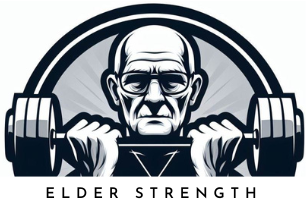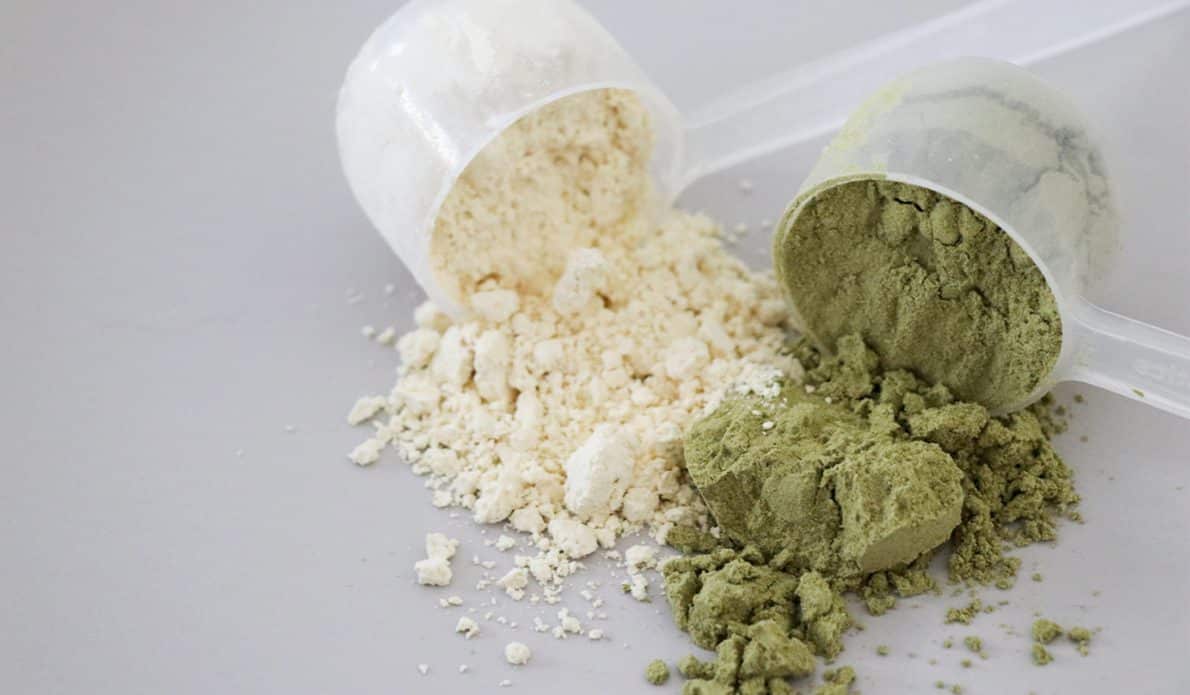Protein is crucial for maintaining and building muscle mass which is very important for seniors. Today we will look at the best protein supplements for seniors!
Protein is the building block of life. You might have heard about the importance of it but it can be hard to actually understand how much and what type of protein sources you need.
It’s also pretty hard to know how much protein you are actually getting unless you track your calories and macronutrients meticulously.
To make things even harder, if you follow a vegetarian or vegan diet, you have to know which protein source to combine so that you get all the essential nutrients.
Finally, strength training is extremely effective for improving your health and returning youthful levels of muscle mass but you need to make sure you get enough protein or your results might be less than ideal.
This is where protein supplements come to play. Protein supplements are very effective and safe when used correctly
The market is full of different kinds of supplements with all kinds of marketing talk and special ingredients. It can be hard to decide and make a wise decision while choosing a protein supplement if you are new to this stuff.
What is Protein
All food is made out of three macronutrients, fats, carbohydrates and protein. Dietary protein is consists of chains of amino acids that your body uses to build and regenerate tissue.
You could think of the macronutrients of food like building a brick house. Protein is the bricks, fat is the mortar and carbs are the workers.
So essentially protein is the building block of your body. There are several different amino acids that your body uses to build all its tissues. Your body can synthesize some amino acids from others but some of them have to be acquired through diet.
These are called essential amino acids and there are nine of them. This is important to know because all protein sources don’t include all the essential amino acids.
Virtually all animal protein sources do include all the essential amino acids as due to some vegetable sources like soy and peas. These are called complete proteins because you can get everything you need to survive from them.
Most vegetable protein sources will lack one or several essential amino acids. These are called incomplete protein sources. This means that you either have to combine different sources with different amino acid profiles or include complete protein sources with them.
This is especially important for vegans as it can be hard to get enough complete proteins through diet alone. Supplements make it much easier to get optimal amounts of protein in your diet for vegans and there are plenty of vegan options available.Complete protein examples:
- Chicken
- Red meat
- Fish
- Eggs
- Dairy
- Soy
- Pea protein
- Rice protein
Incomplete protein examples:
- Legumes
- Gluten and other grains
- Most beans
Are Protein Supplements Safe?
Some people are afraid to use protein supplements because they associate them with doping and steroid due to bodybuilders.
There is no need to be afraid of using protein supplements because they are simply food. It’s no different from using other forms of processed foodstuffs like flours, sugar, cooking oils, etc.
Of course, there is always the risk of food allergy so be careful when starting out and always talk to your doctor if you have known food allergies because some foods have similar allergens with each other.
You also have to be careful and consult your doctor if you suffer from diabetes, kidney disease or failure, liver issues, and several other illnesses. So if you have existing conditions or medications, always consult your doctor.
If you are otherwise healthy and use the supplements as stated in the instructions, there shouldn’t be any dangers. There is always a small chance of getting digestive issues like gas, heartburn, bloating, diarrhea or constipation like anytime you introduce a new food to your diet. So start slowly and see how your body reacts.
Daily Protein Requirements For Seniors
The amount of protein you need daily depends on your age, weight and activity levels. As we age our body’s capability to process protein declines slightly so the older you are the more protein you need to maintain health.
Your bodyweight naturally affects how much protein you need daily. A large person naturally needs more nutrients than a smaller person.
Finally, your activity levels affect the amount of protein you need. If you are very active or do strenuous exercise, like strength training, you will need more protein.
This is because strength training causes your muscle tissue to break down. Your body adapts by building it back and making the muscles a bit larger. This requires a lot of protein and energy as your muscle mass consists mostly of protein.
So how much exactly do you need protein? Well, that depends on who you ask. The official recommendations range from as low as 0.36g per lbs of bodyweight to 2g per lbs of body weight.
The 0.36g per lbs of body weight (or 0.8g per kg of body weight) is the USDA recommendation for bare minimum for healthy adults. This is likely too little for active seniors.
The upper limit is something many professional bodybuilders suggest. They are likely using steroids which allow your body to use way more protein for regeneration. This is definitely not optimal for active seniors either.
The truth is somewhere in the middle as always. People who know what they are talking about, like Menno Henselmanns, are recommending around 0.8g per lbs of body weight.
This would mean 120 grams of protein for a 150 lbs person. This is likely enough to cause optimal muscle growth and maintenance. You can eat less and survive just fine, but it’s probably not optimal. Likewise eating more will likely produce no additional benefits.
Whey Protein Supplements For Seniors
If you are not a vegan or a vegetarian, my recommendation for the best protein is whey. Dairy consists of two main proteins, whey, and casein. Whey is the part of milk that is left out when you make cheese.
Whey is a complete protein with an exceptionally good absorption rate and amino acid profile. This means it has everything you need to supplement your diet.
The best part is that whey is dirt cheap. You can get whey protein cheaper than real milk if you know what you are looking for. There are several different kinds of whey protein that differ on concentration.
Whey protein is relatively subtle in taste and dissolves to water completely. It can be a bit bitter and the more concentrated the form, the worse it will taste. This is why I recommend using whey protein concentrate instead of isolate.
I also prefer to take my protein supplements unflavored as I have a relatively good tolerance for bad tastes and I think that trying to mask a bad taste makes it just taste worse. That said you might be different and actually enjoy the flavored options more.
My recommendation for whey protein is the Nutrition Bulk Whey. It costs only $25 for 3 lbs and doesn’t have any unnecessary ingredients. It’s simply cheap and high-quality whey protein.
Nutriton Bulk Whey
- Cheap
- Complete protein
- Great absorption
Vegan Protein Supplements For Seniors
If you are a vegan there are a few options. The most common options are soy, hemp, pea, and rice. All of these are relatively good options as they are complete proteins and completely plant-based.
Most of these have less than optimal amino acid profile compared to whey for example but if you eat an otherwise diverse diet and supplement with them, they work just fine.
Most of them have one other thing in common as well. They taste horrible. And don’t get me wrong, this isn’t a vegan thing. I actually prefer eating mostly plant-based protein. Fortunately, rice protein makes an exception to this rule.
Rice protein won’t dissolve to water as well as whey so it will always have a bit of a floury or grainy texture but the taste is relatively neutral. This is why I mostly supplement with brown rice protein.
My recommendation for brown rice protein is the Raw Warrior Brown Rice Protein.
Raw Warrior Brown Rice Protein
- Vegan
- Complete protein
- Neutral taste for a vegetable protein
Conclusion
I hope you found these recommendations for the best protein supplements for seniors useful and will try them yourself. If you have any questions don’t hesitate to contact me in the comments section below.
Protein is very important for seniors and the requirements increase with age and especially if you are doing strength training. Supplements definitely help to make sure you are getting enough protein in your daily diet.
If you find the idea of drinking protein shakes disgusting, my recommendation is to mix them in a smoothie with milk, berries, and bananas. Another great option is to mix whey in your porridge at breakfast.
If you found this article useful, please subscribe to my newsletter, bookmark my site and share it in your favorite social media!
See you next time.



As an over 50 male, I have noticed the decline in muscle mass that comes as we age. From reading your article, it’s apparent that I need to consider protein supplements. In the past the taste and texture has turned me off, but your recommendation to add them to smoothies might just make them palatable. Thanks for the information.
Thanks for the comment Rex! Protein supplements can definitely help you with maintaining your muscle mass but they are not magic by any means. The real magic is strength training and eating a healthy diet. Supplements are just that, supplements. They should be the last 20% of the equation. Check out the links in the post if you want to learn more about strength training for older people. All the best!
Good Article or Seniors needing more protein.
I had heard of Whey, But didn’t really know what it was or what it was used for.
Thanks
Ronnie
Glad you liked it, Ronnie! It’s very common that people don’t know what whey actually is. It’s just a part of milk but when you think about what nature intended milk for, it’s easy to comprehend why it’s so effective as a supplement.